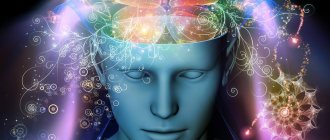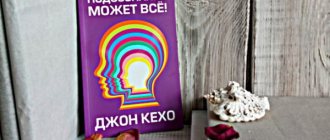- September 8, 2018
- Life style
- Antonova Ksenia
Everyone has heard the expression that people who read books are always more successful than people who watch TV. The issue of reading books is especially relevant with the development of modern technologies. Most people now watch various videos, read short posts on social networks and websites, and, of course, play computer games. Now a person has more ways to get information. And what is the benefit of reading books?
Helps relax
How is reading useful? According to sociological surveys, it is among the top 10 ways to help relieve tension and stress. And how does reading help you relax? Reading has always attracted people because it allows them to awaken their imagination. A person can temporarily find himself in a fairy-tale world, cutting himself off from routine and everyday worries.
It is also recommended to read books before bed - then you can relax and your brain can take a break from everyday activities. Just you need to read not complex scientific works, but easier literature. Reading has a beneficial effect on the nervous system, which also has a good effect on sleep.
By turning on the imagination, a person begins to receive various emotions from reading. And reading is one of the ways to form thinking. In addition, by relaxing and putting the book aside, a person can look at some things from a different angle, which can be very useful. Nowadays there are many different literary genres, and a person can choose the one that suits him most.
Reading helps us understand other people better
In psychology and neurophysiology, there is such a thing as an internal model of another person’s consciousness (Theory of Mind). This term refers to the ability to understand other people's experiences as one's own and, thanks to this, to explain and predict the behavior of other people. Some people have this ability to a greater extent, others to a lesser extent, depending on their innate empathy and experience of interacting with other people.
American psychologists David Comer Kidd and Emanuele Castano proved in 2013 that reading fiction increases understanding of other people's minds. An important condition: it must be high-quality literature.
A thousand participants in the experiment were asked to read excerpts from high-quality fiction, light popular literature, and popular science literature (non-fiction). Books for the first list were taken from recent finalists for national literary awards, and for the second, from the Amazon bestseller list. The texts had different content and themes.
After the study participants read the texts, psychologists tested them for understanding of other people's minds. The best results were shown by those who read high-quality fiction.
The authors of the experiment explain these data by the fact that in great literature everything is like in life: the heroes are complex individuals, their inner world is not revealed in a way that is obvious to the reader.
The reader has to analyze the hero, that is, make intellectual efforts and turn on creative thinking. The reader then successfully transfers the experience gained in understanding fictional characters to real situations. Perhaps a significant part of this beneficial effect is that we become physically involved with the characters, as the study described above showed.
Expands vocabulary and improves literacy levels
Many modern people underestimate the benefits of reading books. But they are one of the sources of replenishing your vocabulary. By reading various literature, a person learns new words and their meanings. Thanks to your extensive vocabulary, you can explain your thoughts to people in a detailed and clear manner; your speech will be interesting with well-written sentences.
If you compare the speech of a book lover and someone who spends many hours playing computer games, you will hear that their manner of speaking is very different. The one who reads will be able to structure the speech so that it is understandable to you, replace difficult-to-understand words with synonyms and add beautiful phrases to make it more interesting.
But how do books improve literacy levels? While reading, a person encounters the same words many times and remembers their correct spelling. It's the same with punctuation. Therefore, by reading books, a person increases his level of literacy.
How to protect your eyesight?
If you imagine an avid reader, it will almost always be a person with glasses. For a long time, doctors associated the habit of reading a lot (and subsequently sitting in front of a computer/tablet/smartphone) with worsening vision and advised limiting reading time.
Those who have worn glasses since childhood tell stories about how they were forbidden to read, and they hid with a book and a flashlight, for example, under the bed. And, supposedly, this is why they have poor eyesight.
Until recently, it was believed that the book appeared recently by the standards of evolution, and the human eye did not have time to adapt to reading printed characters. But this idea of reading is not correct.
People of the present and future can read to their heart's content! Scientists have found that for acute vision, a person needs daylight. And where he looks - at a book or a landscape - is not important.
A recent study found that children who were outdoors for at least 1-2 hours a day had better vision than others. And this was not related to their level of physical activity or time spent reading a book or tablet. Nor was it found that exercise prevented or reduced eye strain, factors still thought to be key.
Of course, book and computer lovers are more likely to have eye problems. But this happens not because of the harmful effects of paper or screen, but because they go out for walks less often!
Adds confidence
Some people believe that the benefits of reading books are less than watching short posts and notes on social networks, as well as various videos. Of course, watching videos can also be beneficial if they are educational. But reading makes a person feel more confident.
And we're not talking about psychology books or other various tips on how to deal with self-doubt. By reading various literature, you increase your level of education. Many famous scientists and writers preferred to spend time in libraries rather than in educational institutions.
You independently search for information and choose which subject you want to deepen your knowledge on. When you demonstrate your erudition to others, it increases your confidence. And the admiration of your knowledge by others has a beneficial effect on your self-esteem.
The benefits of spending time reading a book
- Intellectual development . Many works have a deep meaning, a vital idea, or an answer to a question that has long interested the reader. Reading scientific works and articles increases a person's level of knowledge. This activity develops his worldview.
- Improving literacy and speech . Teachers noticed a pattern: a child who enjoys reading (regardless of the genre) makes fewer mistakes than a student who does not read. The same applies to all book lovers. The correct spelling and pronunciation of words are stored in a person’s memory. This is much more effective than memorizing the rules of the Russian language. Competent speech will help you better formulate your thoughts and convey them to other people.
- Increasing vocabulary . When the reader encounters unfamiliar words, he becomes interested in their meaning. Literary works often have separate chapters with dictionaries. Scientific works contain professional terms, and historical novels contain old words that have already gone out of use.
- Variety of genres . At school, children are told to read the classics, which, more often than not, do not interest young minds. Because of this, reading is a boring activity for many. However, now there is a wide selection of different genres, from children's literature to science fiction. You can read for entertainment or to gain new knowledge.
- Development of creativity and imagination . Often famous poets and writers create their masterpieces by drawing inspiration from their colleagues. After reading a beautiful poem, a person will try himself in the role of a creator. He may not become a great poet, but he will acquire creative skills. In addition, reading helps develop imagination. When a child reads an interesting book, he imagines the characters, setting, and plot in his head. This has a positive effect on his mental activity.
- New acquaintances . People organize book clubs and invite others to reading evenings. Here a person finds new friends based on common interests and genres. Bookcrossing, a free exchange of books, is gaining popularity. Works “travel” from one reader to another. Everyone can leave their notes or wishes. Before you pick up a book, you need to leave the work on the shelf yourself.
Develops memory and thinking
Literature has a beneficial effect on higher mental functions. What does reading books develop? Of course, memory and thinking. While reading a book, a person talks about an episode, reflects on the actions of the characters and forms his own opinion about the book he read.
Also, while reading, a person needs to remember the characters, their history and other details important to the plot. Because then you will be able to understand the story better, and you won’t have to re-read the same episode several times. Various poems and poems train the memory especially well. Therefore, book lovers are usually better at finding the necessary information and highlighting the main thing, and comparing and systematizing information trains logical thinking.
Helps you look at the situation from the outside
Psychologists believe that the benefit of reading books also lies in the opportunity to look at any situation from the perspective of literature. Often the literature describes situations, but also gives a way to solve them or several different options. Such literature belongs to the psychological genre and allows a person to better understand himself and the people around him.
Such a view from the pages of a book is perceived by a person better than advice given by another person. Because no one imposes a point of view on anyone, and a person does not associate the story of book characters with his friends. Therefore, books help to better understand other people and improve relationships with others.
What is better to read
Which useful books to choose to read is a question to which each person determines the answer independently. But first of all, it is recommended to determine what exactly the goal is.
We recommend reading: How to wash grease
- If you need a book for general development, you should choose classical literature. Its main property is that classics develop a sense of beauty, stimulate thinking and imagination, and broaden one’s horizons.
- Scientific literature will be of interest to those who are passionate about specific problems in the exact or natural sciences, astronomy, physics, biology or medicine.
- It is recommended that even those who are not fans of versification become familiar with poetry. Good poetry develops imaginative thinking and teaches us to understand unusual associative series.
- Philosophical literature. Without preparation, one can easily get confused in such books, so it is better to start with collections of parables adapted for the average reader, and then move on to the works of famous authors.
Advice! When choosing best-selling books, you should carefully read the annotations and read the reviews.
Sometimes works of dubious artistic value gain short-lived popularity.
Develops creativity
What is the use of books? They have a beneficial effect on the development of creative thinking and creative abilities. Creative people can generate some interesting ideas that can be taken from books. A person can be inspired by the stories of other extraordinary people and begin to engage in creativity.
Nowadays there are not only books with tips on developing lateral thinking, but also so-called creativity notebooks, which offer various tips for developing creativity. But the best thing is when a person can use the acquired knowledge in his activities.
Fighting prejudice
Good and high-quality literature can help in the fight against prejudice. When we read, we learn to understand people of other races, cultures and religions, we learn more about life in other countries and the customs of other eras. We learn to empathize with people regardless of their skin color or sexual orientation.
For example, a study was conducted after which it turned out that children who grew up on stories about the young wizard Harry Potter are much more loyal to immigrants, refugees, homosexuals and African Americans. Loris Vezzali, Dino Giovannini. The Greatest Magic of Harry Potter: Reducing Prejudice.. Throughout the story, Harry Potter and his friends teach readers tolerance and tolerance. It turns out that this children's book is not as simple and useless as it might seem to someone.
Increases concentration
Psychologists also note that the benefit of reading books is that it increases the level of concentration. After all, in order to better understand a work, a person needs to focus on the plot and not be distracted by other matters. This is especially important for books that require maximum use of thinking.
Often people believe that the faster the reading speed, the better. But this is good only when you understand the meaning of what you read and can analyze the book. And this is not an indicator of concentration. It is better to read more slowly, but understand the meaning of the work.
This ability to concentrate will be useful to a person in any activity. The more focused a person is while reading, the better he will be able to form his opinion about the work. And in life, this skill will allow a person to make more balanced decisions and quickly assess the situation. In addition, concentrating on reading, a person rests and relaxes.
Increased creativity
The process of reading is often associated with increased levels of creativity. People who read fiction regularly are believed to be less conservative and less uncomfortable with ambiguityKeith Oatley, Mihnea C. Moldoveanu. Opening the Closed Mind: The Effect of Exposure to Literature on the Need for Closure.. They are more creative and free.
The ambiguous nature of fiction encourages people to make unusual decisions and look at situations from a slightly different angle. This is the key to creativity. When we consider different options for the development of the same situation, it becomes easier for us to see new opportunities and ways to solve the existing problem.
Beneficial effect on brain function
Scientists have long noted the benefits of reading in terms of brain function. It protects against Alzheimer's disease. While reading, the brain continues to work actively, which allows it to remain in good shape. All together this has a beneficial effect on his condition, improving it. Therefore, doctors advise reading several pages a day for prevention so that the brain continues to work actively.
Scientists have also proven that a person ages faster as soon as the brain begins to age. And reading allows it to work, which helps you stay young longer. It will be most effective if you not only read familiar literature, but also master new areas with the help of books. Thanks to this, your brain will work actively, which will have a beneficial effect on the functioning of your body.
Increased life expectancy
Reading books prolongs life. According to recent studies, the life expectancy of people who enjoy reading is on average two to three years longer than those who do not read. Avni Bavishi, Martin D. Slade, Becca R. Levy. A Chapter a Day: Association of Book Reading with Longevity.. To live longer, you need to set aside about half an hour a day to read literature.
In order to improve the quality and length of your life, it is not at all necessary to do some extremely difficult things. It turns out that you just need to set aside a little time to read.
The benefits of reading books out loud
Most believe it is suitable for children. This technique is also used in school literature lessons. Reading aloud is a form of shared leisure time. Therefore, couples are often advised to read books out loud to each other - this brings people even closer together and adds romance.
Children love reading aloud. Especially if an adult “voices” the characters in the book in different ways. The child develops auditory attention and perception. Also, through emotionally charged reading aloud, children learn to better understand the emotions of other people. But you don’t need to read for too long - it is important that the child not only listens carefully, but also understands the plot of the work.
Also, reading aloud improves auditory perception - a person tries to understand and remember information by ear, this allows one to more actively use thinking. This form of reading improves diction. Try to read slowly so that the listener understands the meaning of the book. Try to convey the character of the characters in your voice, placing accents correctly. This is a great exercise for training your voice. Therefore, reading aloud is necessary at any age.
The benefits of reading books are enormous. But there is no need to force a person to read, because then this activity will not bring him pleasure. You just need to find the book that can interest him. And then a person will be able to open this wonderful world of fantasy and get acquainted with the heroes and their fascinating stories. A book is a person’s friend who will always support.
Try to read a few pages of good literature every day. So gradually you will begin to read more and more. Read books of different genres to keep your brain active. And you will be able to expand your knowledge in various areas, which will increase your self-esteem and make you more confident. Books allow a person to think more broadly, creatively and continue to dream.
Reading immerses us in the atmosphere of another world
When reading fiction, the power of imagination helps us experience what the book is saying. The brain reacts to phenomena and objects mentioned in the book as if the reader were dealing with them in reality. For example, when we read the word “coffee,” the area of our brain responsible for our sense of smell is activated, as if we were smelling the coffee aroma.
The effect of what we read on the brain continues even after we have stopped reading and returned to the real world.
This was confirmed by a study conducted at Emory University (USA). There, student volunteers read a book for nine evenings, after which each morning they underwent magnetic resonance imaging (MRI) of the brain. The researchers chose the historical novel Pompeii by Robert Harris as their subjects. Due to the sharp, dramatic plot, it keeps readers in suspense until the end.
After they began reading and throughout the study, the students developed active connections in the form of nodes and connections in different areas of the brain—a phenomenon the researchers called increased connectivity. Increased connectivity was evident not only in the speech areas of the brain, but also in areas responsible for somatosensory and motor functions.
These areas are involved in creating our ideas about physical sensations. For example, when we imagine running, the same neurons in the brain that “turn on” when we actually run are activated. Empathizing with the events of the novel, it is as if we ourselves are experiencing them in the literal sense.
Interestingly, the increased connectivity found persisted in the students' brains even five days after finishing reading. Lead author of the study, neuroscientist Gregory Burns, compared this phenomenon to muscle memory. How long the effect lasts is not yet known. Does such profound imaginative power have any practical use? Yes - and more on that below.











